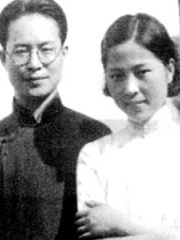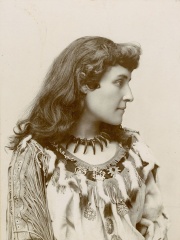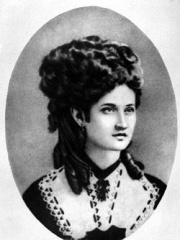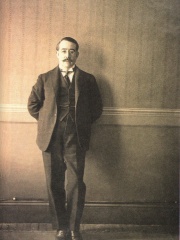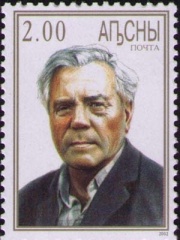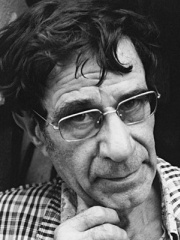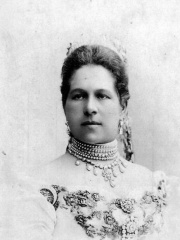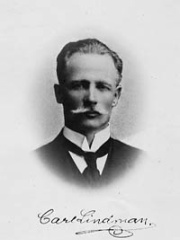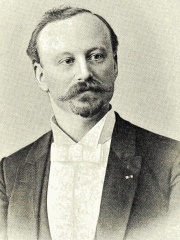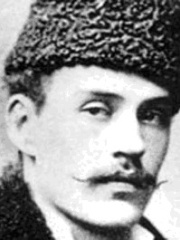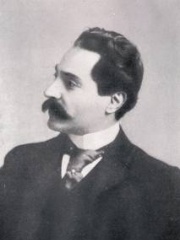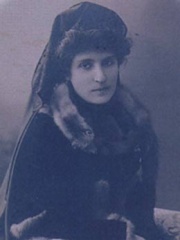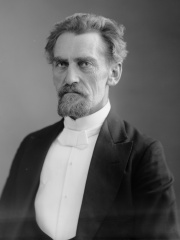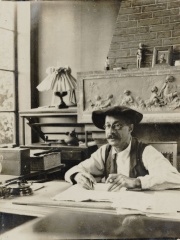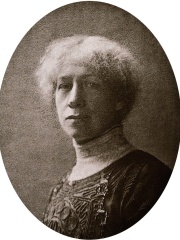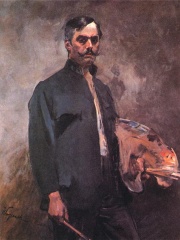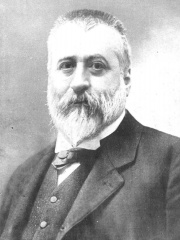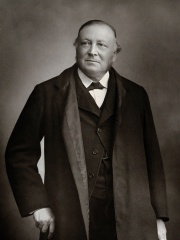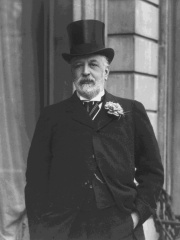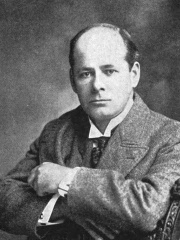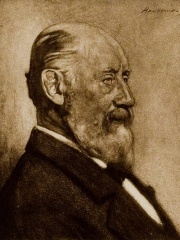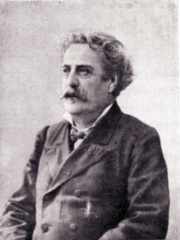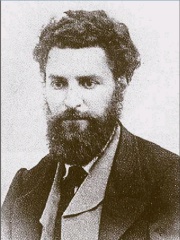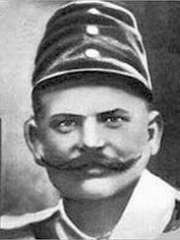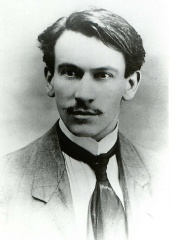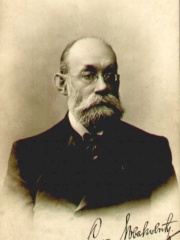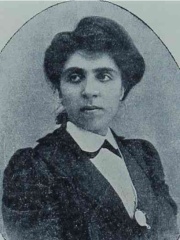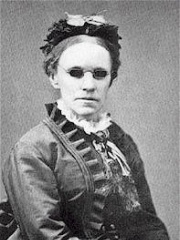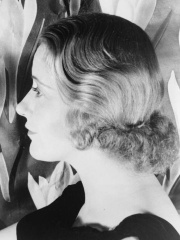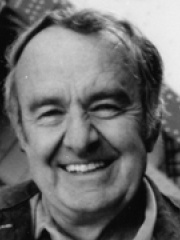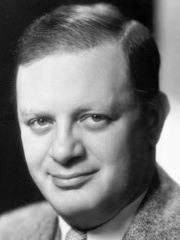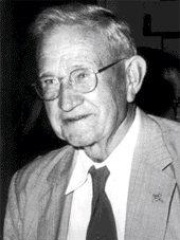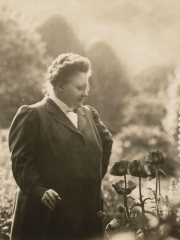WRITER
Booker T. Washington
1856 - 1915
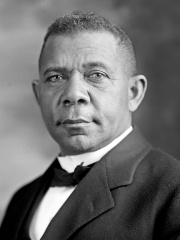
 Booker T. Washington
Booker T. Washington
Booker Taliaferro Washington (April 5, 1856 – November 14, 1915) was an American educator, author, and orator. Between 1890 and 1915, Washington was the primary leader in the African-American community and of the contemporary Black elite. Born into slavery on April 5, 1856, in Hale's Ford, Virginia, Washington was freed when U.S. troops reached the area during the Civil War. As a young man, Booker T. Washington worked his way through Hampton Normal and Agricultural Institute and attended college at Wayland Seminary. Read more on Wikipedia
His biography is available in 42 different languages on Wikipedia (up from 40 in 2024). Booker T. Washington is the 3,298th most popular writer (up from 3,434th in 2024), the 4,753rd most popular biography from United States (down from 4,377th in 2019) and the 374th most popular American Writer.
Memorability Metrics
Page views of Booker T. Washington by language
Among WRITERS
Among writers, Booker T. Washington ranks 3,298 out of 7,302. Before him are Shen Congwen, Rhianus, E. Pauline Johnson, John Zerzan, Ka'b ibn Zuhayr, and Richard Baxter. After him are Borislav Pekić, Nataliya Kobrynska, Leopoldo Lugones, Viktor Astafyev, Alberic of Trois-Fontaines, and Driss Chraïbi.
Most Popular Writers in Wikipedia
Go to all RankingsShen Congwen
1902 - 1988
HPI: 59.66
Rank: 3,292
Rhianus
275 BC - 300 BC
HPI: 59.65
Rank: 3,293
E. Pauline Johnson
1861 - 1913
HPI: 59.65
Rank: 3,294
John Zerzan
1943 - Present
HPI: 59.64
Rank: 3,295
Ka'b ibn Zuhayr
700 - 662
HPI: 59.64
Rank: 3,296
Richard Baxter
1615 - 1691
HPI: 59.64
Rank: 3,297
Booker T. Washington
1856 - 1915
HPI: 59.64
Rank: 3,298
Borislav Pekić
1930 - 1992
HPI: 59.64
Rank: 3,299
Nataliya Kobrynska
1855 - 1920
HPI: 59.64
Rank: 3,300
Leopoldo Lugones
1874 - 1938
HPI: 59.63
Rank: 3,301
Viktor Astafyev
1924 - 2001
HPI: 59.63
Rank: 3,302
Alberic of Trois-Fontaines
1201 - 1250
HPI: 59.63
Rank: 3,303
Driss Chraïbi
1926 - 2007
HPI: 59.63
Rank: 3,304
Contemporaries
Among people born in 1856, Booker T. Washington ranks 77. Before him are Princess Isabella of Croÿ, Carl Axel Magnus Lindman, Willem Kes, Franz Roubaud, Giuseppe Martucci, and Günther Beck von Mannagetta und Lerchenau. After him are Nigâr Hanım, Robert Kajanus, André Gedalge, Anna Elizabeth Klumpke, Wojciech Kossak, and Marcelino Menéndez y Pelayo. Among people deceased in 1915, Booker T. Washington ranks 67. Before him are Henry Roscoe, Nathan Rothschild, 1st Baron Rothschild, Morgan Robertson, Hendrik Willem Mesdag, Raffaello Giovagnoli, and Arthur Hughes. After him are Hugo Schiff, Béla Kiss, Louis Pergaud, Stojan Novaković, Mari Beyleryan, and Fanny Crosby.
Others Born in 1856
Go to all RankingsPrincess Isabella of Croÿ
POLITICIAN
1856 - 1931
HPI: 60.24
Rank: 71
Carl Axel Magnus Lindman
BIOLOGIST
1856 - 1928
HPI: 60.23
Rank: 72
Willem Kes
CONDUCTOR
1856 - 1934
HPI: 60.06
Rank: 73
Franz Roubaud
PAINTER
1856 - 1928
HPI: 59.72
Rank: 74
Giuseppe Martucci
COMPOSER
1856 - 1909
HPI: 59.69
Rank: 75
Günther Beck von Mannagetta und Lerchenau
BIOLOGIST
1856 - 1931
HPI: 59.64
Rank: 76
Booker T. Washington
WRITER
1856 - 1915
HPI: 59.64
Rank: 77
Nigâr Hanım
WRITER
1856 - 1918
HPI: 59.57
Rank: 78
Robert Kajanus
CONDUCTOR
1856 - 1933
HPI: 59.45
Rank: 79
André Gedalge
COMPOSER
1856 - 1926
HPI: 59.38
Rank: 80
Anna Elizabeth Klumpke
PAINTER
1856 - 1942
HPI: 59.29
Rank: 81
Wojciech Kossak
PAINTER
1856 - 1942
HPI: 59.26
Rank: 82
Marcelino Menéndez y Pelayo
WRITER
1856 - 1912
HPI: 59.13
Rank: 83
Others Deceased in 1915
Go to all RankingsHenry Roscoe
CHEMIST
1833 - 1915
HPI: 60.16
Rank: 61
Nathan Rothschild, 1st Baron Rothschild
POLITICIAN
1840 - 1915
HPI: 60.15
Rank: 62
Morgan Robertson
WRITER
1861 - 1915
HPI: 60.05
Rank: 63
Hendrik Willem Mesdag
PAINTER
1831 - 1915
HPI: 59.83
Rank: 64
Raffaello Giovagnoli
WRITER
1838 - 1915
HPI: 59.68
Rank: 65
Arthur Hughes
PAINTER
1832 - 1915
HPI: 59.64
Rank: 66
Booker T. Washington
WRITER
1856 - 1915
HPI: 59.64
Rank: 67
Hugo Schiff
CHEMIST
1834 - 1915
HPI: 59.62
Rank: 68
Béla Kiss
EXTREMIST
1877 - 1915
HPI: 59.59
Rank: 69
Louis Pergaud
WRITER
1882 - 1915
HPI: 59.57
Rank: 70
Stojan Novaković
POLITICIAN
1842 - 1915
HPI: 59.47
Rank: 71
Mari Beyleryan
SOCIAL ACTIVIST
1877 - 1915
HPI: 59.34
Rank: 72
Fanny Crosby
WRITER
1820 - 1915
HPI: 59.11
Rank: 73
In United States
Among people born in United States, Booker T. Washington ranks 4,753 out of 20,380. Before him are Grace Moore (1898), Lorraine Gary (1937), Mike Love (1941), Adam Rodriguez (1975), Nick Cassavetes (1959), and Tim Meadows (1961). After him are Billy Sheehan (1953), Clifton James (1920), Marcian Hoff (1937), Allan Sandage (1926), Michael Winslow (1958), and James Denton (1963).
Others born in United States
Go to all RankingsGrace Moore
ACTOR
1898 - 1947
HPI: 59.64
Rank: 4,747
Lorraine Gary
ACTOR
1937 - Present
HPI: 59.64
Rank: 4,748
Mike Love
SINGER
1941 - Present
HPI: 59.64
Rank: 4,749
Adam Rodriguez
ACTOR
1975 - Present
HPI: 59.64
Rank: 4,750
Nick Cassavetes
ACTOR
1959 - Present
HPI: 59.64
Rank: 4,751
Tim Meadows
COMEDIAN
1961 - Present
HPI: 59.64
Rank: 4,752
Booker T. Washington
WRITER
1856 - 1915
HPI: 59.64
Rank: 4,753
Billy Sheehan
MUSICIAN
1953 - Present
HPI: 59.64
Rank: 4,754
Clifton James
ACTOR
1920 - 2017
HPI: 59.63
Rank: 4,755
Marcian Hoff
INVENTOR
1937 - Present
HPI: 59.63
Rank: 4,756
Allan Sandage
ASTRONOMER
1926 - 2010
HPI: 59.63
Rank: 4,757
Michael Winslow
ACTOR
1958 - Present
HPI: 59.63
Rank: 4,758
James Denton
ACTOR
1963 - Present
HPI: 59.63
Rank: 4,759
Among WRITERS In United States
Among writers born in United States, Booker T. Washington ranks 374. Before him are Herman J. Mankiewicz (1897), E. E. Smith (1890), Amy Lowell (1874), Zora Neale Hurston (1891), Donna Tartt (1963), and John Zerzan (1943). After him are Edmund White (1940), John Perkins (1945), Robert M. Pirsig (1928), Horace McCoy (1897), Mike Mentzer (1951), and James Rollins (1961).
Herman J. Mankiewicz
1897 - 1953
HPI: 59.84
Rank: 368
E. E. Smith
1890 - 1965
HPI: 59.76
Rank: 369
Amy Lowell
1874 - 1925
HPI: 59.71
Rank: 370
Zora Neale Hurston
1891 - 1960
HPI: 59.70
Rank: 371
Donna Tartt
1963 - Present
HPI: 59.66
Rank: 372
John Zerzan
1943 - Present
HPI: 59.64
Rank: 373
Booker T. Washington
1856 - 1915
HPI: 59.64
Rank: 374
Edmund White
1940 - 2025
HPI: 59.62
Rank: 375
John Perkins
1945 - Present
HPI: 59.62
Rank: 376
Robert M. Pirsig
1928 - 2017
HPI: 59.58
Rank: 377
Horace McCoy
1897 - 1955
HPI: 59.57
Rank: 378
Mike Mentzer
1951 - 2001
HPI: 59.53
Rank: 379
James Rollins
1961 - Present
HPI: 59.50
Rank: 380
